Money lessons from The Simpsons
06 September 2016
Financial wisdom from Springfield's finest

Courtesy The Simpsons/20th Century Fox Television
America's most iconic family has taught us a thing or two about finances over the years. Check out 15 of the most enlightened money lessons from the groundbreaking animated sitcom.
Choose your investments wisely
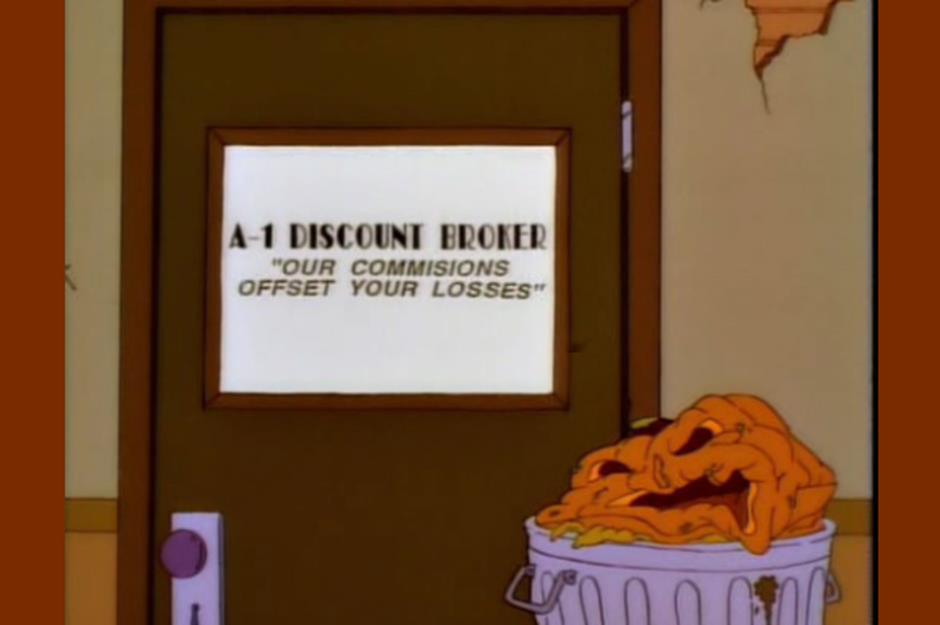
Courtesy The Simpsons/20th Century Fox Television
In episode 120, Homer decides to invest in pumpkin futures. “They've been going up the whole month of October and I got a feeling they're going to peak right around January. Then, bang! That's when I'll cash in.”
Choose your investments wisely

Courtesy The Simpsons/20th Century Fox Television
Failing to use his common sense or do his homework lands Homer a seriously dud investment. Needless to say, come Halloween, the price of pumpkins plummets and he loses all his money. D'oh!
Sponsored Content
Don't be fooled by smooth-talking salesmen
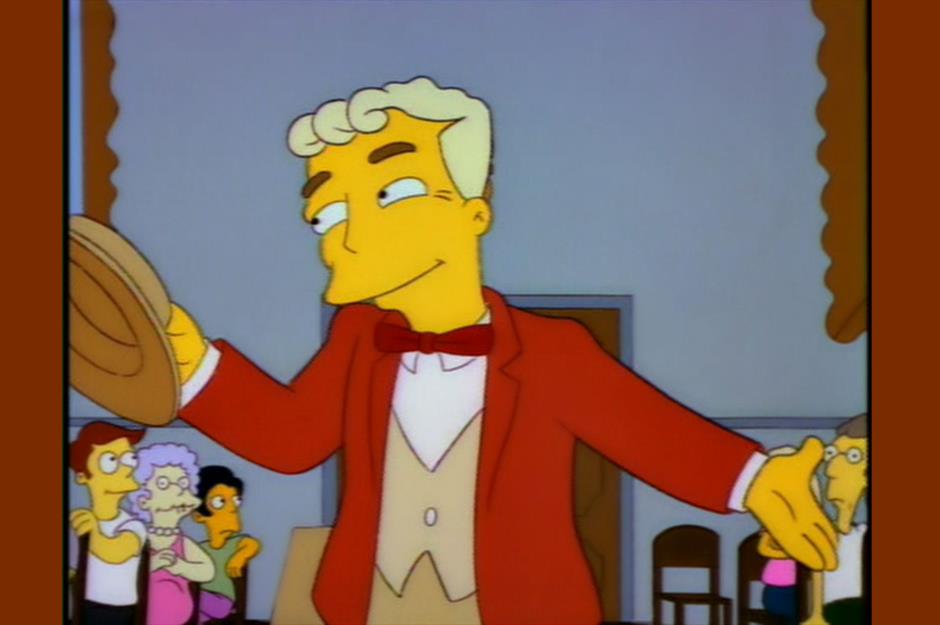
Courtesy The Simpsons/20th Century Fox Television
The super-memorable 'Marge vs. the Monorail' episode is a bona fide Simpsons classic. In this brilliant story, the people of Springfield are talked into investing in a faulty monorail by suave conman Lyle Lanley.
Don't be fooled by smooth-talking salesmen

Courtesy The Simpsons/20th Century Fox Television
Not taken in by his smooth talk and concerned about the safety of the monorail, only Marge is shrewd enough to see through Lanley's spiel. Her fellow Springfield residents aren't so savvy, and the Monorail is given the green light – with disastrous consequences.
Think twice before splurging on your credit card
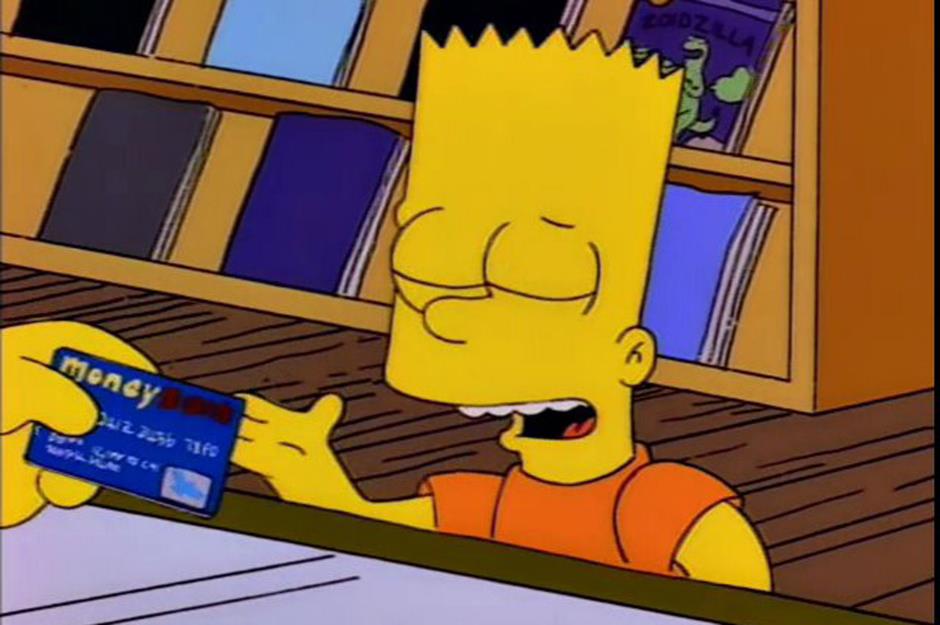
Courtesy The Simpsons/20th Century Fox Television
Bart learns this financial lesson the hard way in episode 173 when he applies for a credit card and goes on a no-holds-barred spending spree, snapping up gifts for his family and a £893 collie called Laddie for himself.
Sponsored Content
Think twice before splurging on your credit card

Courtesy The Simpsons/20th Century Fox Television
Predictably, the unpaid bills pile up. Bart simply ignores the final demands and gets Laddie to bury the credit card. The bailiffs soon come knocking on the Simpsons' front door and Bart has to make some very hard choices.
Identifying a gap in the market can be very lucrative
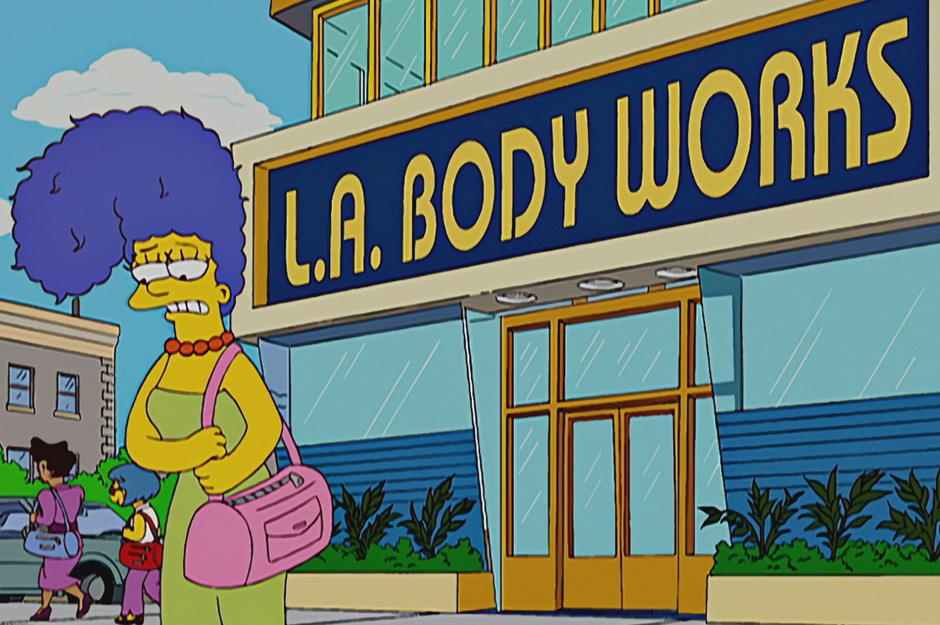
Courtesy The Simpsons/20th Century Fox Television
In 'Husbands and Knives', Marge, intimidated by the mass of perfect bodies and complicated equipment at Springfield's premier gym, opens her own health club for ordinary women called Shapes.
Identifying a gap in the market can be very lucrative
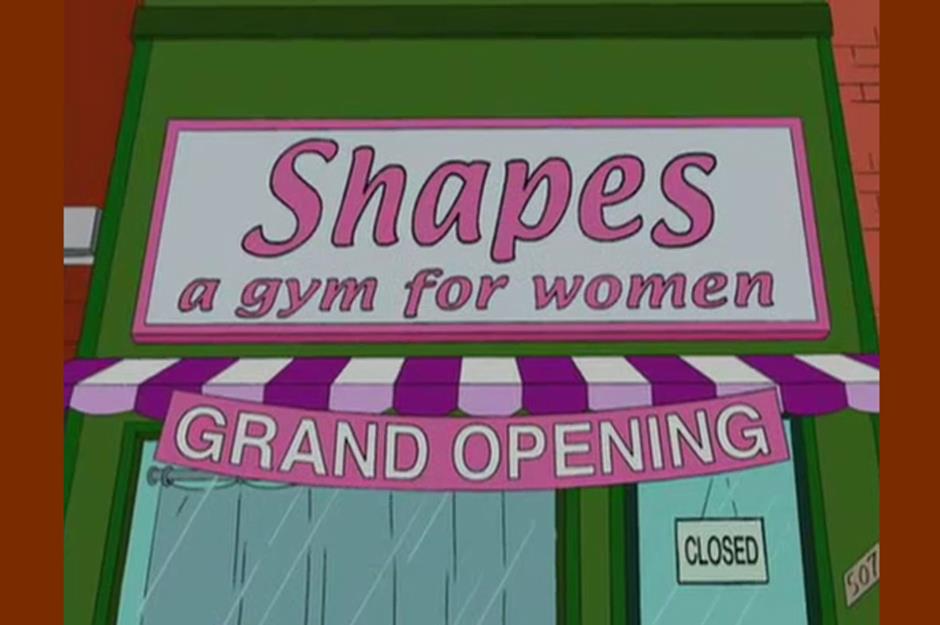
Courtesy The Simpsons/20th Century Fox Television
Spotting a lucrative niche, Marge cashes in big-time on her unique business – the woman-only gym soon takes off and becomes a huge hit, with Marge opening branches of Shapes in countries worldwide.
Sponsored Content
Money doesn't always ruin relationships

Courtesy The Simpsons/20th Century Fox Television
It can actually bring families closer together. In 'Oh Brother, Where Art Thou?' Homer designs a ridiculous car for his auto-manufacturer half-brother Herb, which ends up bankrupting him. The half-siblings fall out.
Money doesn't always ruin relationships
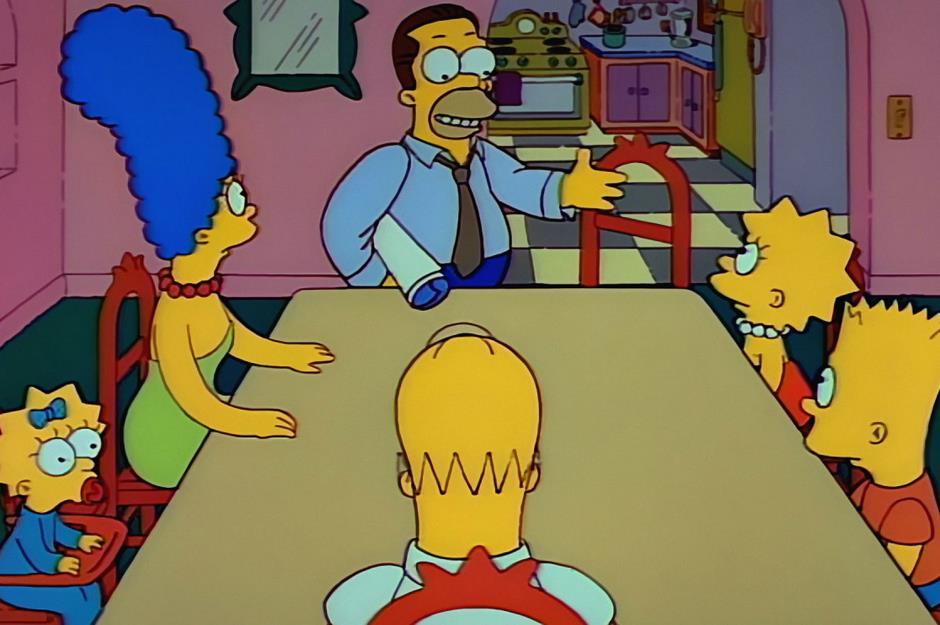
Courtesy The Simpsons/20th Century Fox Television
Thankfully, in the follow-up episode, Homer manages to heal the rift by giving Herb £1,489 to fund his baby chatter translator invention. Herb regains his fortune and everyone lives happily ever after.
Spend your inheritance cash on something worthwhile

Courtesy The Simpsons/20th Century Fox Television
In episode 30 'Old Money', Grampa inherits a whopping £78,910 following the death of his rich girlfriend Bea Simmons at the Springfield Retirement Castle. Consumed by grief, Grampa falls out with Homer at the funeral.
Sponsored Content
Spend your inheritance cash on something worthwhile
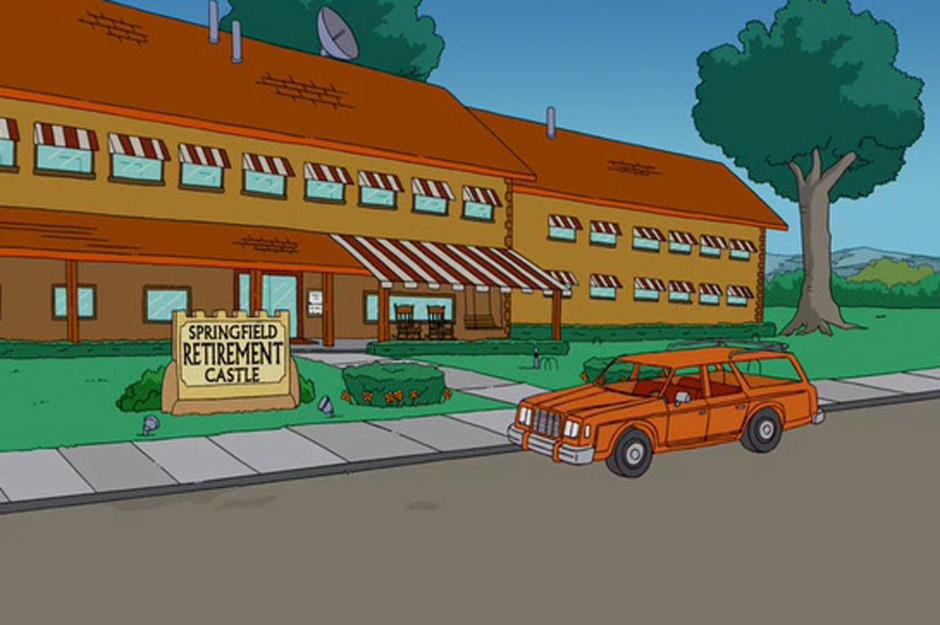
Courtesy The Simpsons/20th Century Fox Television
Gramps heads for the casino to gamble the cash away, but is stopped by a surprisingly sensible Homer. They make their peace and Homer persuades him to spend the cash on renovating the seniors' home instead.
Never sell yourself short
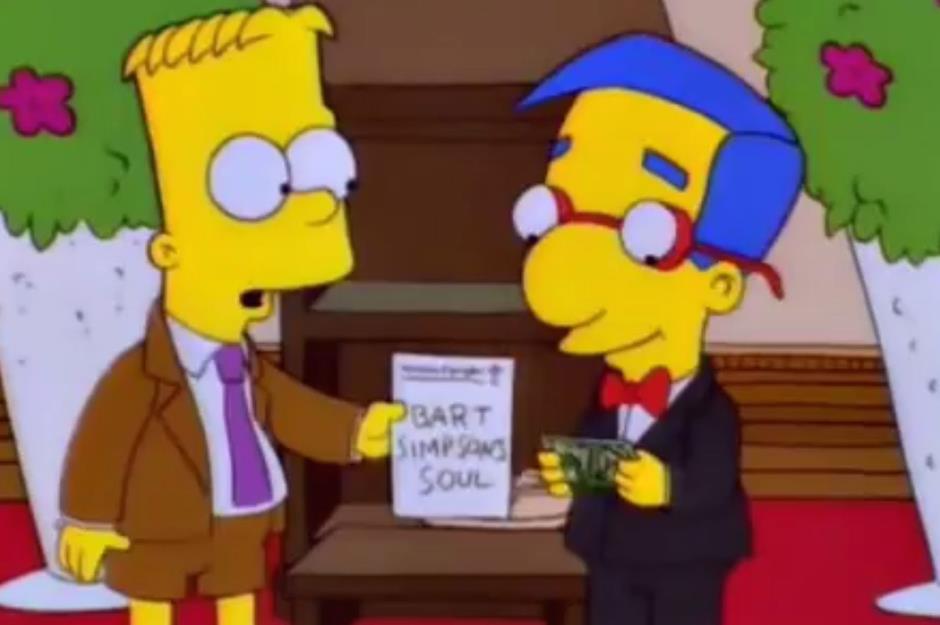
Courtesy The Simpsons/20th Century Fox Television
In episode 132, Bart sells his soul (a piece of paper with the words 'Bart's soul' written on it) to Milhouse for a vastly-undervalued five dollars. Lisa warns him it'll end badly, but Bart doesn't listen and laughs off her concerns.
Never sell yourself short

Courtesy The Simpsons/20th Century Fox Television
Things begin to go wrong for Bart – the family pets turn against him and he loses the ability to laugh at Itchy and Scratchy cartoons – but Milhouse refuses to hand him back his soul unless Bart pays him £37.
Sponsored Content
Be careful who you share your business ideas with

Courtesy The Simpsons/20th Century Fox Television
Keeping quiet about the best ideas is sage advice and spilling the beans on a unique business idea with the wrong person can make for an expensive business mistake, as Homer discovers in 'Flaming Moe's'.
Be careful who you share your business ideas with

Courtesy The Simpsons/20th Century Fox Television
Barman Moe – not the most trustworthy character in the show – steals the Simpson patriarch's 'Flaming Homer' cocktail recipe, and goes on to make a fortune selling the drink, much to Homer's annoyance.
Gambling can be highly addictive
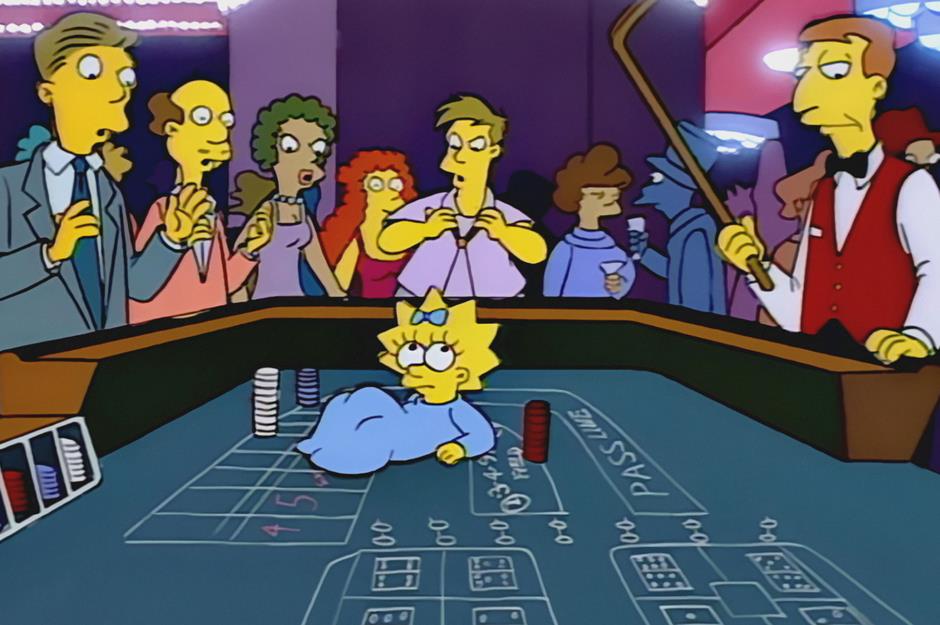
Courtesy The Simpsons/20th Century Fox Television
You may think you can control yourself, but even the most cautious people can end up addicted to gambling. In '$pringfield', the town authorities, desperate to fill their coffers, legalise gambling. In there like a shot, Mr. Burns opens a casino.
Sponsored Content
Gambling can be highly addictive
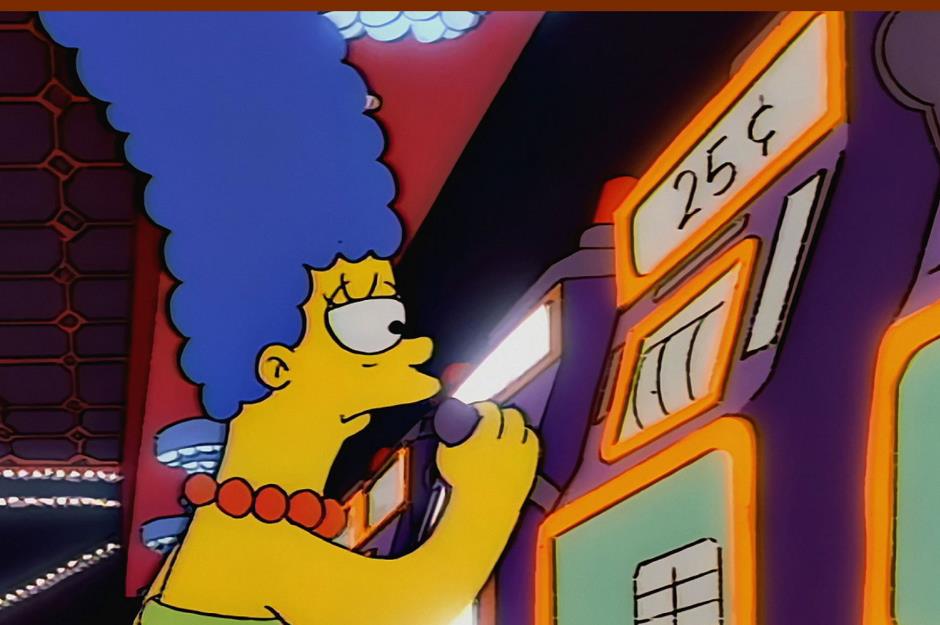
Courtesy The Simpsons/20th Century Fox Television
On a whim, Marge discovers a quarter on the casino floor and plays a slot machine. She rapidly develops a powerful addiction, which turns into a serious problem that pretty much takes over her life.
Ethics come before profits
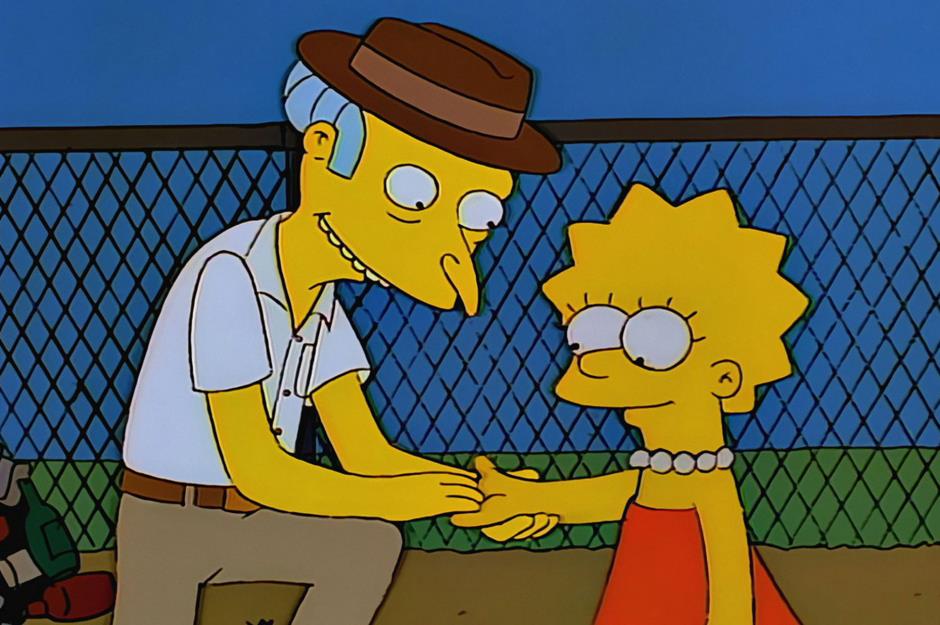
Courtesy The Simpsons/20th Century Fox Television
If you're as ethical as Lisa Simpson. In 'The Old Man and Lisa', Lisa comes to the aid of a bankrupt Mr. Burns by helping him start a recycling business on the proviso he turns his back on his wicked ways. Burns eventually earns enough money to open an 'eco' recycling plant, which turns a colossal profit.
Ethics come before profits
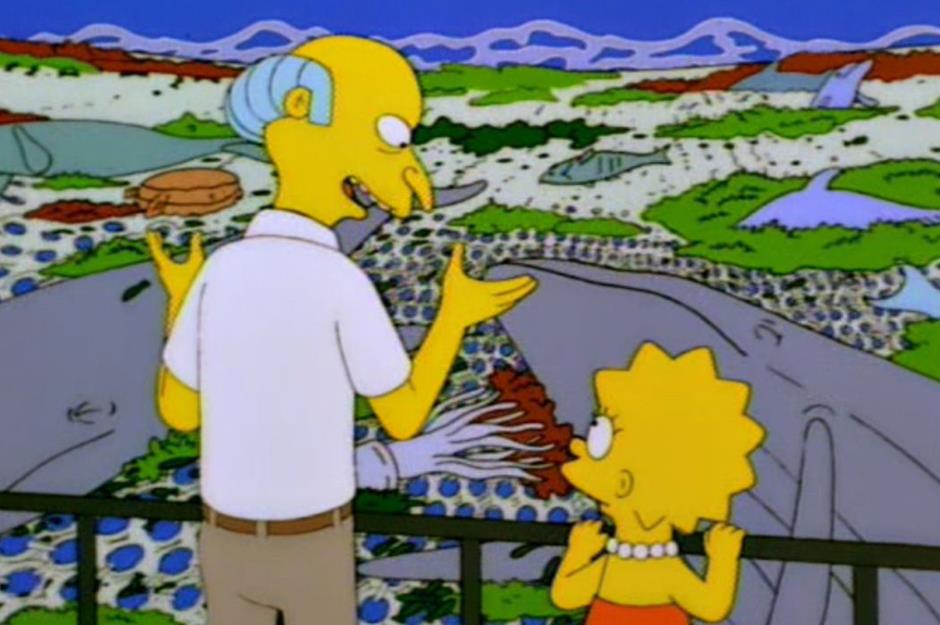
Courtesy The Simpsons/20th Century Fox Television
Lisa soon discovers where all the cash is coming from – the plant is also making environmentally damaging plastic nets to capture sea life, which are then blended into a slurry. Burns sells the firm for £89.4 million, offering Lisa a cut of his ill-gotten gains. She refuses on principle, turning down a cool £8.9 million.
Sponsored Content
Lying on your tax return can get you into all sorts of trouble
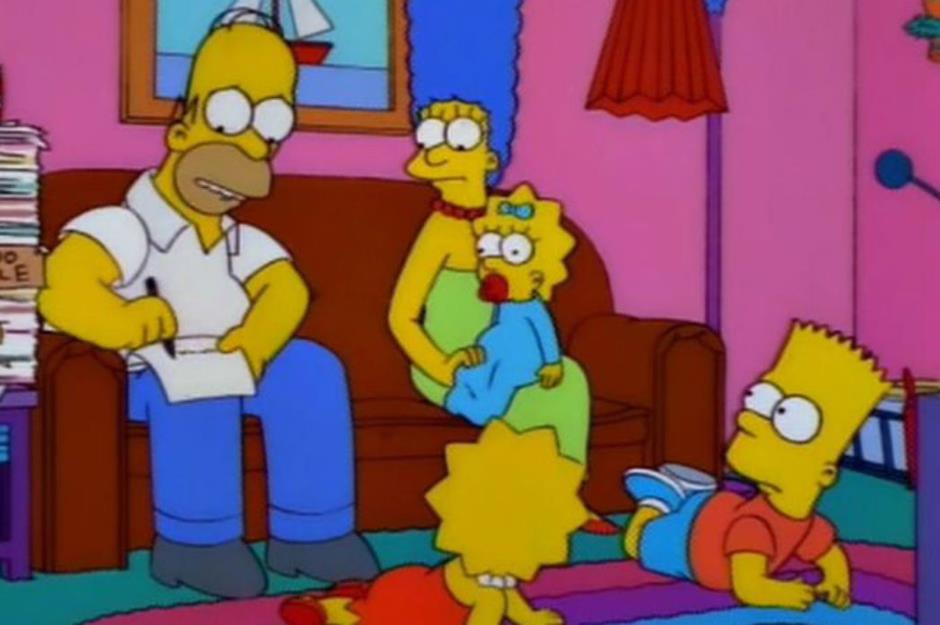
Courtesy The Simpsons/20th Century Fox Television
In episode 198, Homer realises he has missed the April deadline to file his tax return and, in a fit of panic, provides false information to speed up the process. Never a good idea, and the taxman soon smells a rat.
Lying on your tax return can get you into all sorts of trouble
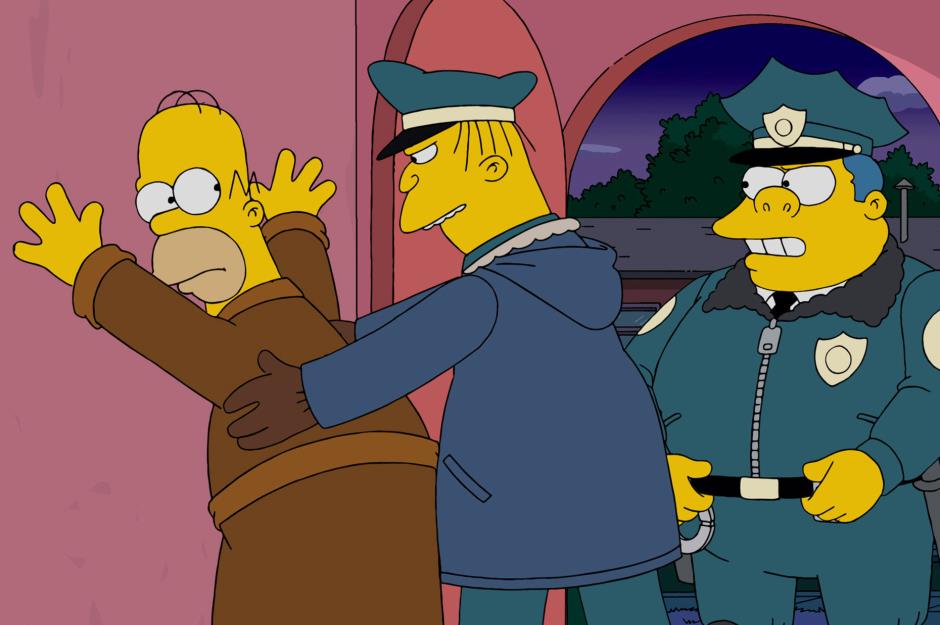
Courtesy The Simpsons/20th Century Fox Television
The taxman gets the FBI on the case and Homer is arrested for fraud. In a desperate attempt to avoid prison, Homer agrees to co-operate with the bureau, who fit him with a wire and use him as an undercover agent.
Family is more important than money
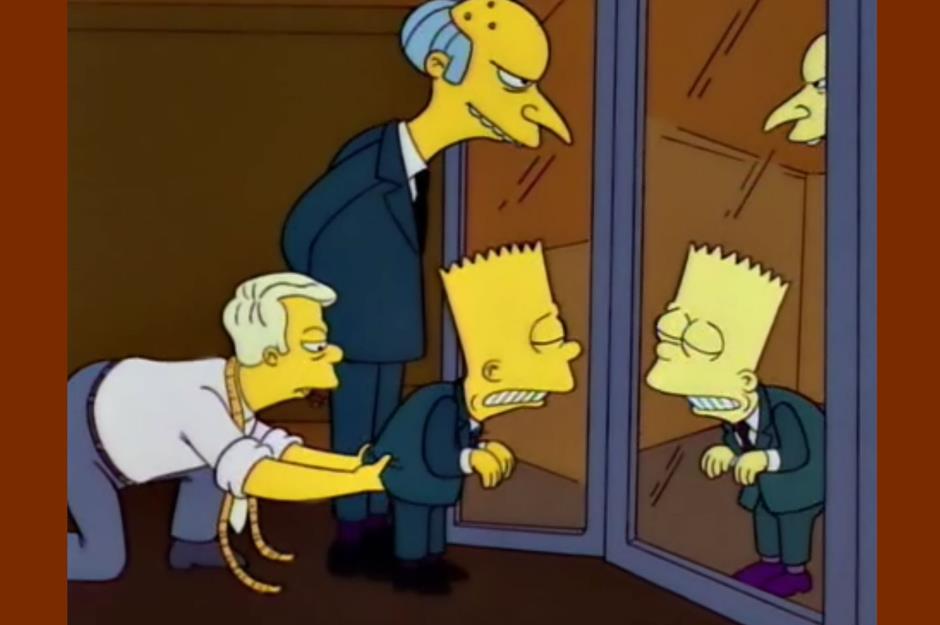
Courtesy The Simpsons/20th Century Fox Television
In 'Burns' Heir', Bart is chosen as the sole beneficiary of Mr. Burns' vast estate. The cold-hearted tycoon promises him anything he wants, so Bart ditches his family and moves into the Burns mansion, but soon becomes lonely.
Sponsored Content
Family is more important than money

Courtesy The Simpsons/20th Century Fox Television
Bart becomes tired of his all-new privileged but lonesome life. Realising his loving family is infinitely more important than Mr. Burns' piles of money, Bart eventually decides to leave the sprawling mansion and return home.
Always keep an eye on the competition

Courtesy The Simpsons/20th Century Fox Television
What Homer lacks in brain power, he makes up for in enthusiasm. In episode 68, the hapless character starts up a snow clearing business called Mr Plow following a blizzard that cripples Springfield. The business takes off and the customers keep on coming.
Always keep an eye on the competition
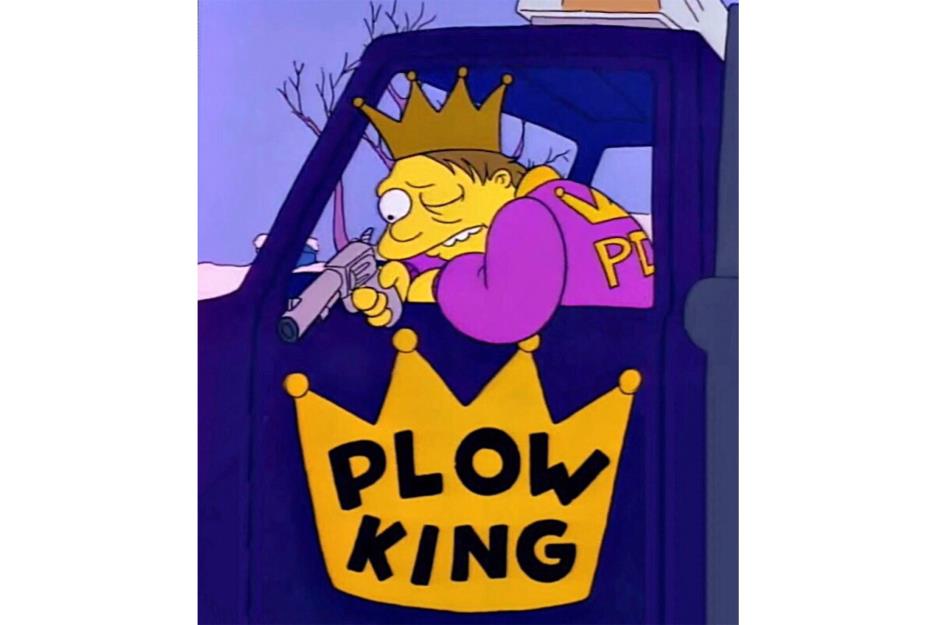
Courtesy The Simpsons/20th Century Fox Television
That is until Homer's buddy Barney gets a piece of the action. Declaring himself 'The Plow King', Barney proceeds to steal his friend's customers, leaving Homer massively out of pocket. Ignoring or failing to keep up with the competition has sunk many a business, small and large.
Sponsored Content
Supporting local businesses could pay off... or maybe not
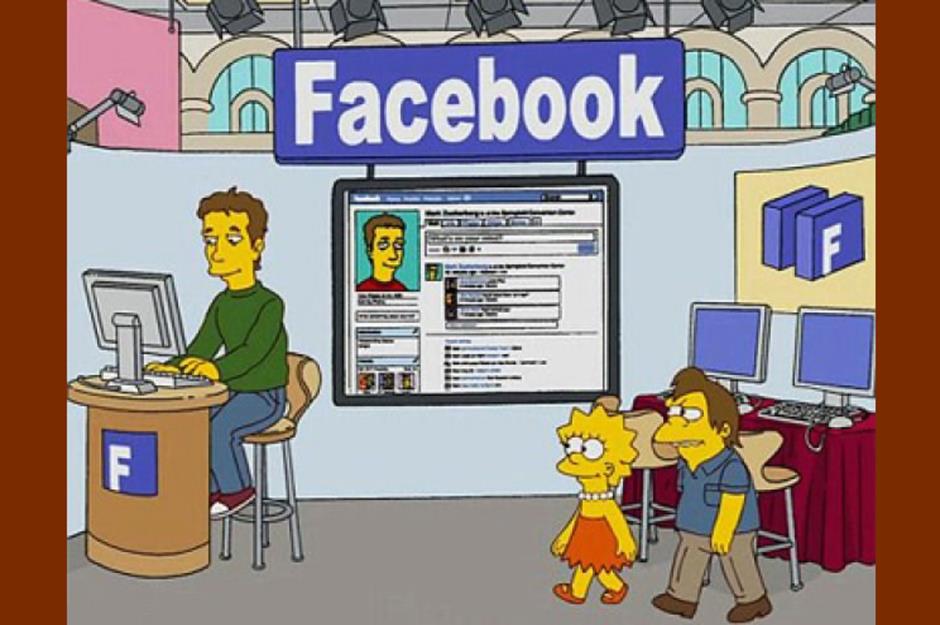
Courtesy The Simpsons/20th Century Fox Television
In 'Loan-a-Lisa', Lisa uses Grampa's inheritance cash to bankroll Nelson's bike company. The budding entrepreneur initially makes a success of the endeavour, and attracts the attention of Mark Zuckerberg, Bill Gates and Richard Branson, who inspire him to quit school to pursue his business dream.
Supporting local businesses could pay off... or maybe not
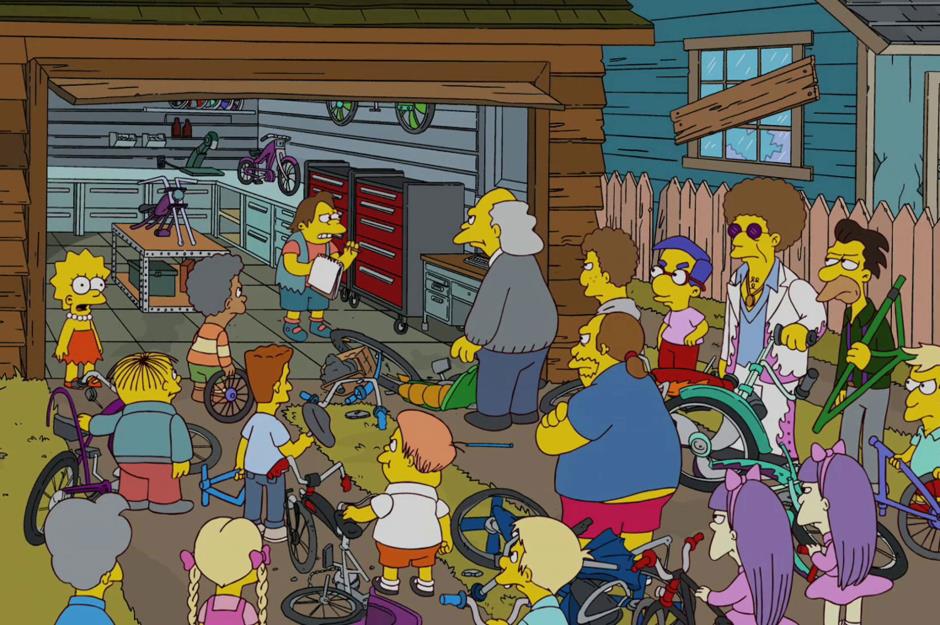
Courtesy The Simpsons/20th Century Fox Television
Lisa tries her best to persuade Nelson to stay in school but to no avail. Nelson drops out but the business collapses. The bikes, which are cobbled together with substandard materials, simply fall apart. Nelson decides to return to school and Lisa, although happy Nelson is back in education, loses her investment cash.
Sentimental value trumps financial worth

Courtesy The Simpsons/20th Century Fox Television
Mr. Burns may be the richest man in Springfield, but even he knows that sentimental value trumps financial worth. In 'Rosebud', Burns has a nightmare in which he dreams about Bobo, his long-lost childhood teddy bear.
Sponsored Content
Sentimental value trumps financial worth
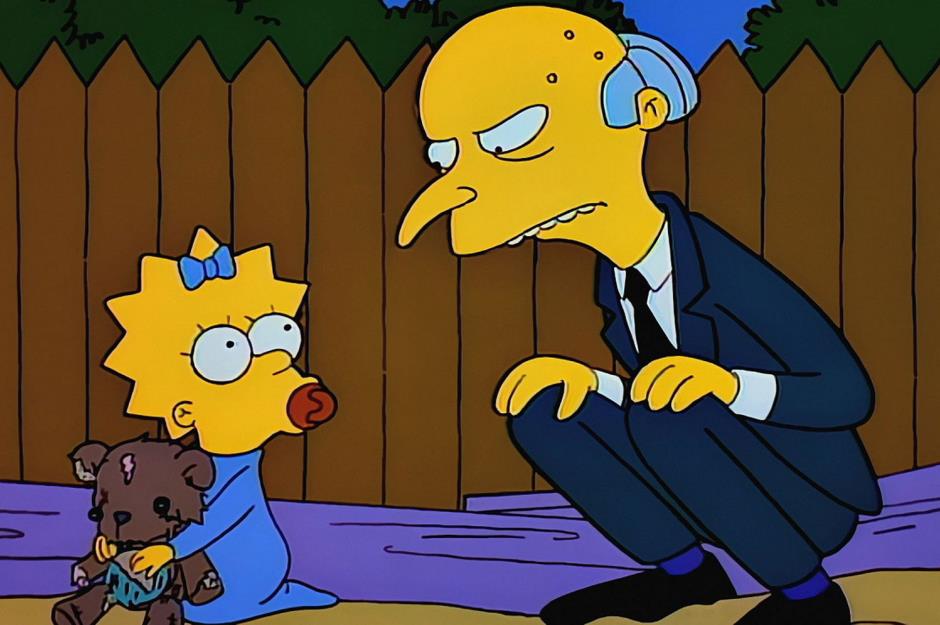
Courtesy The Simpsons/20th Century Fox Television
Burns becomes obsessed with finding his beloved Bobo and tracks him down to none other than the Simpsons’ home – amazingly, the bear has ended up as Maggie's new toy. Burns is so keen to get his Bobo back, he agrees to exchange it for £744,898 and three Hawaiian islands.
Comments
Be the first to comment
Do you want to comment on this article? You need to be signed in for this feature